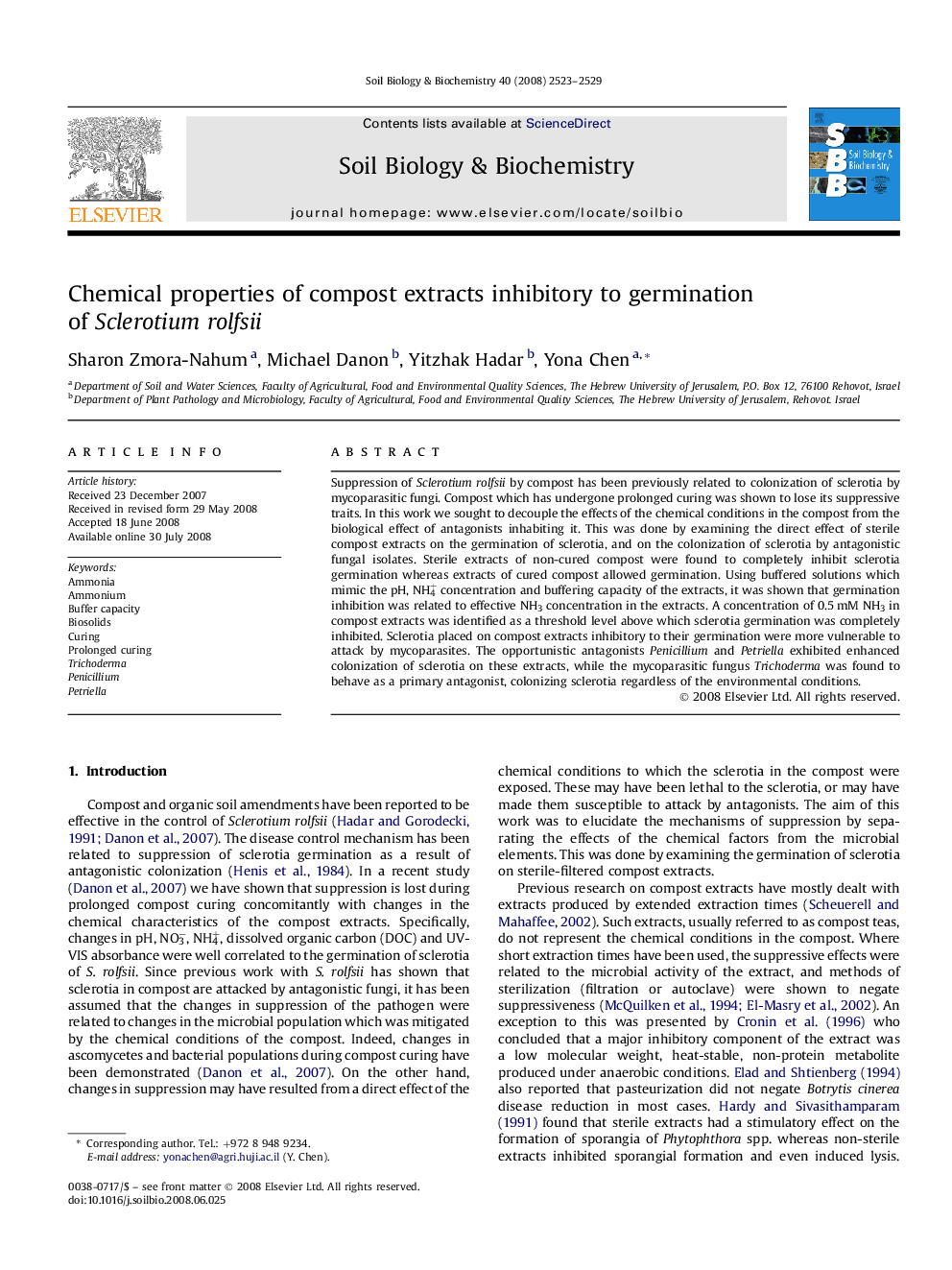| Article ID | Journal | Published Year | Pages | File Type |
|---|---|---|---|---|
| 2025652 | Soil Biology and Biochemistry | 2008 | 7 Pages |
Suppression of Sclerotium rolfsii by compost has been previously related to colonization of sclerotia by mycoparasitic fungi. Compost which has undergone prolonged curing was shown to lose its suppressive traits. In this work we sought to decouple the effects of the chemical conditions in the compost from the biological effect of antagonists inhabiting it. This was done by examining the direct effect of sterile compost extracts on the germination of sclerotia, and on the colonization of sclerotia by antagonistic fungal isolates. Sterile extracts of non-cured compost were found to completely inhibit sclerotia germination whereas extracts of cured compost allowed germination. Using buffered solutions which mimic the pH, NH4+ concentration and buffering capacity of the extracts, it was shown that germination inhibition was related to effective NH3 concentration in the extracts. A concentration of 0.5 mM NH3 in compost extracts was identified as a threshold level above which sclerotia germination was completely inhibited. Sclerotia placed on compost extracts inhibitory to their germination were more vulnerable to attack by mycoparasites. The opportunistic antagonists Penicillium and Petriella exhibited enhanced colonization of sclerotia on these extracts, while the mycoparasitic fungus Trichoderma was found to behave as a primary antagonist, colonizing sclerotia regardless of the environmental conditions.
